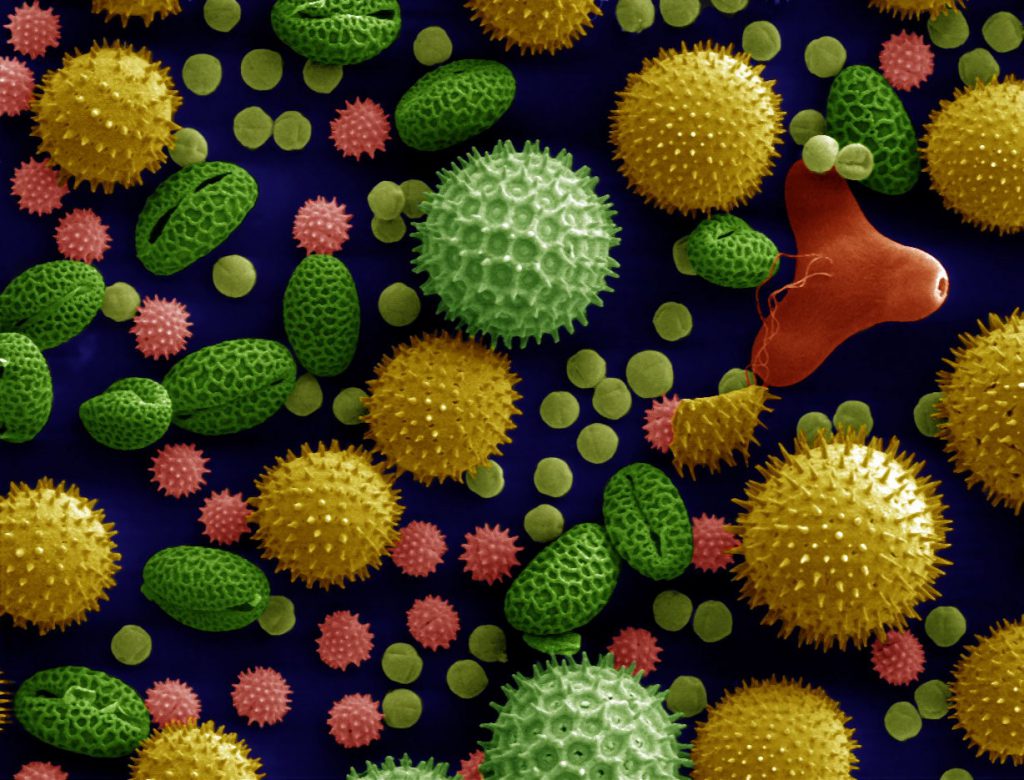By Christine Doronio
Itchy eyes, stuffy noses, and yellow-dusted streets. Pollen season is well under its way in Georgia. As the weather gets warmer, trees and plants all over the southeast will continue to release pollen that is essential for plant reproduction. The microscopic pollen grains are carried from one plant to another by insects and the wind to fertilize plants.
And if it feels like pollen season is getting worse every year – it is. Another thing we can thank climate change for.
Read on to learn more…

What Causes Me to Sneeze so Much?
Pollen is technically harmless to humans; however, when pollen enters our nose, eyes, and throat it can sometimes trigger our immune system. An allergic reaction is when, the pollen is mistakenly detected by our antibodies as an “invader” and our immune cells signal histamine and other chemicals to be released. Itchy eyes, runny noses, sinus congestion, and even difficulty breathing are all symptoms of pollen related allergies, sometimes called “hay fever.” The severity of symptoms can vary between people ranging from mild congestion to severe anaphylaxis.
What is Pollen Count?
During pollen season, pollen counts that describe the amount of pollen in the air are often given with the local weather report. Pollen counts measure the number of pollen grains per cubic meter of air, and they can range from a few hundred to even thousands.
How is This Related to Weather?
Because it is warmer year-round in the southeast, pollen strikes early, lasts longer, and appears in greater quantities then in cooler climates. Spring pollinating plants are triggered to release pollen when the weather gets warmer after a cold winter. Additionally, the less time they are dormant during the winter, the more pollen they can produce. Thus, in warmer climates, the plants wake-up earlier and produce more pollen.
How is Climate Change Making this Worse?
In recent years, it has been shown that pollen levels and the subsequent allergies have increased with climate change. Three things contribute to this. One, since climates have been warming earlier in the year, plants are releasing pollen earlier and producing more pollen. Two, increased levels of carbon dioxide in the atmosphere increases plant growth and ultimately the amount of pollen produced. And three, particles in air pollution can even interact with pollen making it more allergenic. The changes in pollen season and increase in pollen allergies related to climate change can be detrimental to a population’s overall respiratory health.
In Atlanta, the highest recorded pollen count was 9369 in March 2012. In March 2021, the pollen count reached 6974, the seventh highest count in over 30 years.
So what can we do to fight allergy season and climate change?
In addition to taking doctor recommended allergy medicine and minimizing pollen exposure, be sure to wash and change clothes after being outdoors to remove pollen on your skin and hair. Grow trees and plants that do not produce pollen in your own garden or consider planting female trees since they do not release pollen.
When thinking about climate change, utilize low-carbon, low-pollutant,- power sources, like solar, wind, and waterpower, and public transportation to reduce carbon emissions in the atmosphere that triggers pollen production. Lowering our carbon footprint and learning about ways to mitigate climate change can help us breathe easier, especially during allergy season.
For more information
“Anthropogenic climate change is worsening North American pollen seasons”
“Extreme Allergies and Global Warming”
“Nothing to sneeze at: Global warming triggers earlier pollen”
“How Pollen Affects Us Differently In The South”
“Allergies and the Immune System”
